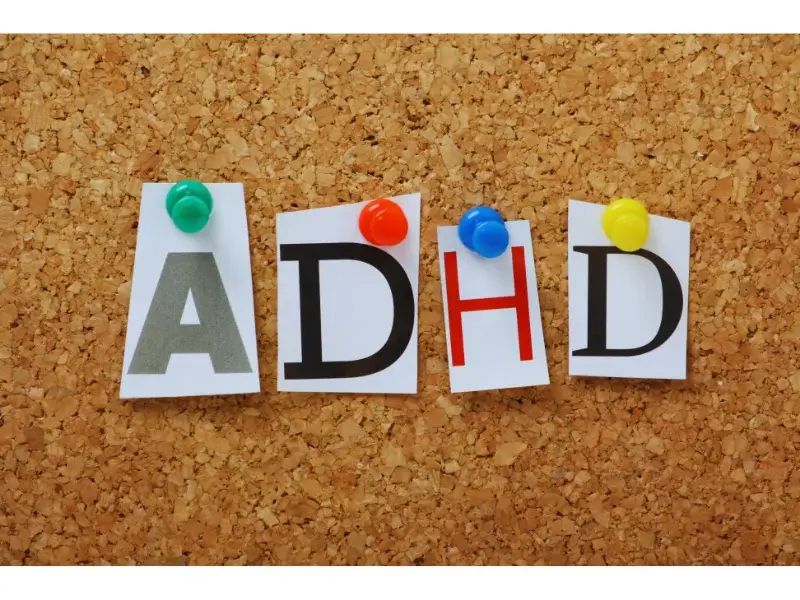
Mental health is integral to our overall well-being, yet the emphasis on physical health frequently overshadows it.
Despite increasing awareness, the stigma surrounding mental health issues still exists, making it difficult for many to seek help and support.
What Is Mental Health?
Mental health includes our emotional, psychological, and social well-being. It affects how we think, feel, and act.
Moreover, it helps determine how we handle stress, relate to others, and make choices.
Mental well-being is essential at every stage of life, from childhood and adolescence through adulthood.
Why Mental Health Awareness is Critical
Mental Health Conditions are Common
Mental health issues are more prevalent than many realize.
According to the World Health Organization (WHO), 1 in 4 people in the world will be affected by mental or neurological disorders at some point in their lives.
In the United States alone, millions of adults live with a mental illness.
Awareness can encourage affected individuals to seek help and receive proper treatment.
Early Detection and Support Save Lives
Raising awareness about mental health can lead to earlier detection and intervention, which can be lifesaving.
Conditions such as depression, anxiety, and others, if left untreated, can have severe consequences, including suicide.
Suicide is the second leading cause of death among 15-29-year-olds globally.
Breaking Down Stigma and Discrimination
Stigma is a significant barrier to seeking help for mental health issues.
Many individuals are reluctant to speak about their struggles for fear of judgment or discrimination.
Raising awareness facilitates open conversations, promotes acceptance, and gradually helps break down the misconceptions contributing to stigma.
Promoting Mental Health Education
Awareness promotes education on mental health for everyone, not just those dealing with mental health issues.
This knowledge is vital in recognizing signs of mental distress, either in oneself or others, and understanding how to respond effectively.
Encouraging Empathy and Understanding
Awareness fosters empathy by highlighting the personal experiences of those living with mental health conditions.
This understanding can lead to more compassionate workplaces, schools, and communities where people support each other in maintaining mental well-being.
Supporting Policy and Advocacy
Mental health awareness can lead to better policies and resource allocation by governments and organizations.
When citizens and policymakers understand the importance of mental health support, they are likelier to invest in mental health services, research, and public initiatives.
Encouraging Healthy Lifestyle Choices
Increased mental health awareness often comes with insights into how lifestyle choices affect mental well-being.
Regular physical activity, adequate sleep, balanced nutrition, managing stress, and social connections positively contribute to mental health.
Ways to Raise Mental Health Awareness
Here are several strategies to increase mental health awareness in their communities and beyond.

Education is Key
Sharing knowledge about mental health is one of the most effective ways to raise awareness.
Schools, workplaces, and community centers can host workshops and seminars to educate people about the basics of mental health.
Topics could include how to recognize mental health issues, ways to support someone struggling, and the importance of seeking professional help when needed.
Social Media and Campaigns
Social media offers a powerful platform to reach a large audience quickly.
Creating informative posts, sharing personal stories, and using hashtags can help spread the word about mental health.
Online campaigns can also be very effective, especially when encouraging interaction, such as asking followers to share their experiences or tips.
Mental Health Days
Organizations and schools can designate specific days dedicated to mental health awareness.
These days, such as meditation sessions, guest speaker events, or panel discussions can be arranged.
These events allow people to pause, learn about mental health, and discuss issues openly in a supportive environment.
Support Groups
Support groups provide a safe space for individuals to express their feelings and share their experiences with mental health issues.
Having the opportunity to speak openly without fear of judgment can be incredibly healing.
Starting or promoting local support groups can make a massive difference to those feeling isolated with their mental health struggles.
Collaboration with Healthcare Professionals
Partnering with psychologists, psychiatrists, and other mental health professionals can add credibility and depth to awareness efforts.
These experts can offer workshops, write informative articles, or provide resources that help demystify mental health care and encourage more people to seek help when necessary.
Literature and Public Speaking
Books, pamphlets, and other written materials about mental health can be distributed in public libraries, schools, and other community spaces.
Public speaking events, where individuals talk about their own experiences with mental health, can also be very impactful.
These personal stories can help others feel less alone and more understood.
Art and Creative Expression
Art has a unique way of expressing and processing emotions.
Organizing art exhibitions or contests that focus on mental health can allow people to express their feelings through painting, writing, music, and other art forms.
It raises awareness and helps in reducing the stigma around mental health issues.
Sports and Physical Activities

Exercise plays a significant role in improving mental health.
Organizing sports events or fitness classes that emphasize mental wellness can be a fun way to raise awareness.
These activities can include sessions on how physical health impacts mental health, thus educating participants while they engage in healthy physical activity.
Engaging Influencers and Public Figures
Celebrities and public figures have a broad reach and can influence many people.
When these individuals speak openly about their mental health challenges, it can make a big difference.
They can help normalize conversations about mental health and encourage their followers to take their mental health seriously.
Workplace Initiatives
Employers can significantly contribute to mental health awareness by creating a supportive work environment.
It includes providing mental health days off, creating a more flexible work schedule, offering mental health resources, and training managers to recognize symptoms of mental health issues in their teams.
Community Involvement
Collaborating with local businesses, schools, and religious organizations can help spread mental health awareness across various community segments.
These institutions can host events, distribute materials, and integrate mental health education into their programming.
Policy Advocacy
Encouraging local government officials to prioritize mental health can lead to broader systemic change.
Advocacy efforts could aim to increase funding for mental health services, integrate mental health education into school curriculums, and improve access to mental health care for all community members.
Conclusion
Mental health is as essential as physical health, and awareness is the first step towards achieving a balance between the two.
Promoting conversations about mental health can empower individuals to seek support, reduce the harmful effects of stigma, and create communities where mental well-being is a shared priority.
Keep in mind that mental health awareness is not just for those who struggle with their mental health; it is for friends, families, coworkers, and societies striving to grow stronger together.
Understanding the critical importance of mental health awareness for everyone is vital to creating a healthier, more supportive community.
At CNS Center of Arizona, we promote patient-centered, comprehensive clinical care for children, adolescents, and adults.
Our specialized services range from psychiatric evaluation and medication management to individual psychotherapy, addressing a variety of needs, including anxiety disorders, ADHD, mood disorders, and more.
Visit CNS Center of Arizona today to learn more and get in touch with our dedicated team.





